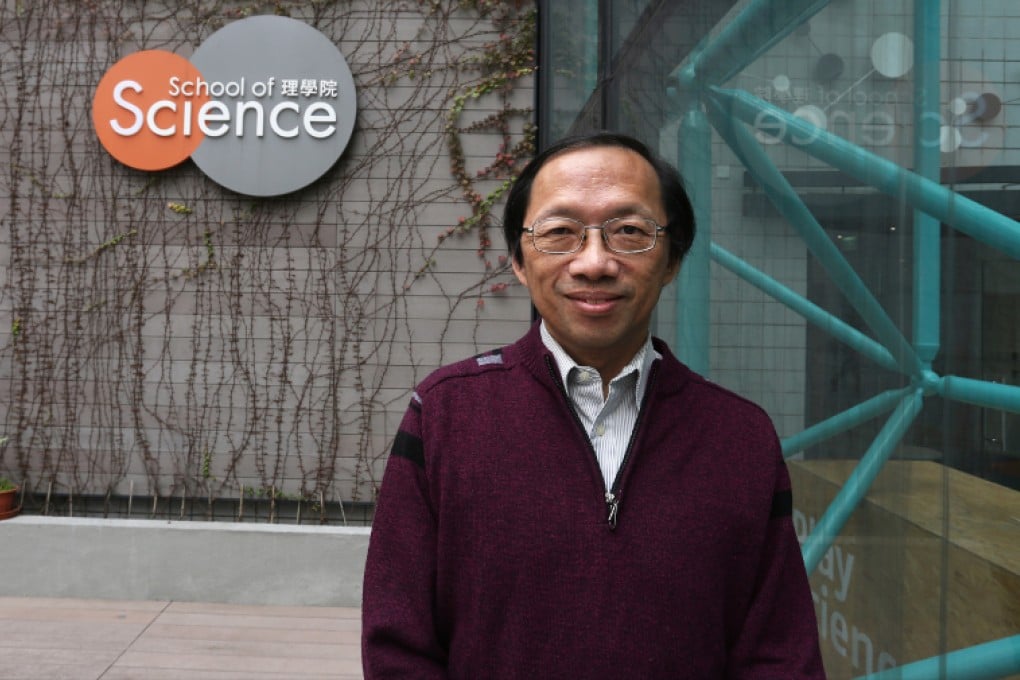The Asian Physics Olympiad is a thrilling start to a young scientist’s career
The Asian Physics Olympiad (APhO) will be held in Hong Kong for the first time this year, hosted by the Hong Kong University of Science and Technology (HKUST). Around 207 secondary school pupils from 27 Asian countries and regions will gather in Hong Kong May 1 to 9 to compete in the 17th edition of the event.

The Asian Physics Olympiad (APhO) will be held in Hong Kong for the first time this year, hosted by the Hong Kong University of Science and Technology (HKUST). Around 207 secondary school pupils from 27 Asian countries and regions will gather in Hong Kong May 1 to 9 to compete in the 17th edition of the event.
Founded in 2000 in Indonesia, the APhO is an annual competition devoted to Asian pre-university students whose interest in physics extends beyond the classroom. Modelled on the International Physics Olympiad (IPhO), which debuted in Warsaw, Poland, in 1967, the APhO demands a high level of intellectual capability from the contestants. Each participating country can send a delegation of up to eight pupils.
The event is supported by the Education Bureau, the Physical Society of Hong Kong, and the Hong Kong Academy for Gifted Education, with the aim of encouraging a competitive spirit in the territory. Michael Wong, Professor of Physics at HKUST, has been appointed the chairman of the competition’s organising committee.
“Last year, we were proud to see the Hong Kong team achieve the city's best results at the APhO. They returned home with three gold medals, one silver medal, two bronze medals, and two honorable mentions,” says Wong. “This year, we're excited as the the number of contestant has hit a record high for the APhO’s debut in Hong Kong.” One reason for the interest is that the deep research carried out by HKUST in the realm of physics has given it an international reputation, notes Wong.
Wong is looking forward to making a difference at this year’s event by instilling the participants with energy and enthusiasm for science.
The APhO’s mission is to promote physics education and encourage a spirit of communication and cooperation among learning communities in Asia, as well as to nurture and inspire teenagers with a talent for physics.
Past experience shows that the APhO can have a life-changing impact on students. Many participants had their minds sharpened and their confidence boosted by participating in the competition. It also helps them develop their potential after graduation.
“Recent reports have shown a slight drop in the number of students studying physics in secondary schools,” says Wong. “By having this premier event happening here, we hope that local and regional students will develop a keener interest in physics, and recognise the value of physics.”
“We are particularly happy to see developing countries joining the APhO. They have a greater need for physics education to generate new ideas and applications to lay the foundations for a better quality of life. Recent years have also seen an increasing number of medallists and high-achieving contestants coming from less developed regions,” Wong adds.
Moreover, APhO helps build a network among the leaders of the delegations which enables them to learn from each other. They can find out about the differences in educational ideas in different Asian countries, and the cross-cultural communication paves the way for collaborative projects in physics educations across the region. Wong is glad to see that many physics teachers from local secondary schools are actively supporting the event, in spite of its limited remuneration.
This year, the competition will take place in the HKUST sports hall. It is composed of two challenging five-hour exams; one is theoretical and the other is experimental. The questions will be both cutting-edge and creative.
There will also be seminars featuring renowned keynote speakers, including Professor Luk Kam-biu, who led a team of scientists to win the 2016 Breakthrough Prize in Fundamental Physics.
The activities scheduled for students to learn about scientific and technological developments will take place against the backdrop of a festival atmosphere. A programme of social activities will give students the chance to learn about the local culture, and make friends from across the region. There will also be a visit to Ocean Park.
Every country or region can send one delegation consisting of its eight most talented physics students and two supervisors. Hong Kong, as the host, is allowed to be represented by two delegations.
“Apart from posing academic challenges, the APhO enables students to broaden their horizons,” says Wong. “Ability alone is often not enough to guarantee success. Through building international friendships, these teenagers become more understanding, independent, curious and tolerant of other cultures. They start to view themselves as members of an international scientific community. It is all about personal growth and development.”
When asked what Wong thinks about the standard of physics students in Hong Kong, he replies, “Absolutely brilliant. The outstanding achievement of Hong Kong students in such a competitive contest is worthy of praise. The Hong Kong team has achieved outstanding results in APhOs and IPhOs. We have also identified many elite young physicists [during the competition], and offered them early entry into the university.”
For instance, Lam Ho-tat, a Secondary Five student who won a gold medal in the 13th Asian Physics Olympiad (APhO) in India in 2012, was admitted to the HKUST at the age of 16.
APhO may be competitive, but it also opens a window for brilliant youngsters to widen their view of the outside world and make a crucial step toward a more promising future. It is a thrilling start for a future scientist, Wong says.